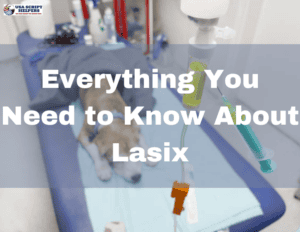Have you ever gone to the pharmacy to fill your prescription, and been presented with two options for medications – the brand name and its generic equivalent? In this blog, we’ll break down the differences between brand names and generic medication so that you can make an informed decision about what’s best for you.
What is a Brand Name Drug?
A drug developed by a pharmaceutical company that has its own unique name. For example, Lexapro® is the brand name version of escitalopram, an antidepressant medication. Brand name drugs are typically more expensive than their generic equivalents because they have been through extensive research and development processes before they become available on the market.
What is a Generic Equivalent Drug?
A generic equivalent drug is simply the non-brand version of a brand drug – it contains all of the same active ingredients as its branded counterpart but under a different name. Generics are typically much cheaper than their branded counterparts because they don’t require any additional research or development costs to bring them to market. In addition, generics are subject to government regulations that help keep prices low for consumers.
For example, escitalopram could be sold under several different names such as Esipram®, Sipralexa®, or Cipralex® – all of which contain exactly the same active ingredient (escitalopram) as Lexapro® but cost significantly less money.
Price Differences Between Brand Name and Generic Drugs
One of the major differences between brand name and generic drugs is cost. While brand name drugs tend to be more expensive, generic versions are often much cheaper because they don’t have to go through the same rigorous testing process as their branded counterparts do before being approved for sale. For those with anxiety who want to save money on their prescriptions, opting for a generic version may be an option worth exploring.
The Pros & Cons of Both Options
Brand name drugs tend to be more expensive, but they offer more assurance that they will work correctly due to the rigorous testing process they undergo before being released into the market. Additionally, some people may find that they respond better to certain brands than others (especially if they experience any side effects).
On the other hand, generics often provide an inexpensive alternative without sacrificing effectiveness; however, since generics don’t need to go through as many tests as brand names do in order to get approval from regulatory agencies, some people find them less reliable than branded options.
Which Should You Choose?
When deciding between a brand name and its generic equivalent, there are several factors to consider. First off, check with your doctor or pharmacist to see if there are any significant differences between the two drugs in terms of effectiveness or side effects.
It’s also important to consider your budget – generics will usually be cheaper than their brand counterparts. Finally, consider how long you’ll need to take the medication – if it’s only short-term use then price may be less of an issue compared with long-term use where saving money may be more important.
Conclusion
Deciding between a brand name and its generic equivalent when filling your prescription can be tricky, especially if you’re not sure what each option entails! By understanding what each type of drug offers in terms of quality and cost savings, you can make an informed decision on which one is right for your situation.
Discover a better way to get the medications you need at prices that suit your budget with Usa Script Helpers today! With our extensive selection of over-the-counter medicines and prescription drugs combined with secure payment methods, convenient shipping options and excellent customer service support – experience a more affordable way to shop for medication online! Check out our website or call us at 1 (888) 646-7749.


















